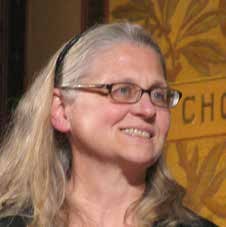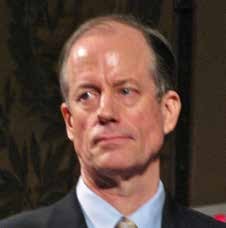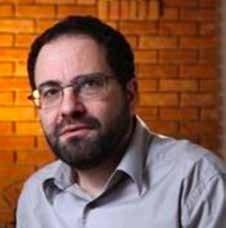(THIS ARTICLE IS MACHINE TRANSLATED by Google from Norwegian)
1773 – Benjamin Franklin published letters showing that the governor of Massachusetts misled Parliament in promoting military build-up in the New World. The governor was expelled.
1777 – Samuel shaw og Richard Marven revealed torture of British prisoners of war. As a result, the US Congress unanimously passed the first law protecting whistleblowers.
1872 – Julius Chambers, one of America's first digging journalists, infiltrated
Bloomingdale Mental Hospital in New York and wrote articles proving abuse of patients.
1906 – Upton Sinclair, author, revealed the conditions in Chicago's slaughterhouses in the novel The Jungle.
1933 – Smedley Butler, retired Major General, revealed in a secret congressional hearing and in his book War Is a Racket "The Business Plot" project – plans to govern Franklin D. Roosevelt.
1969 – The Inside Journalist Gunter Wallraff has created the term "to walraffe", that is, to work in secret in a company or institution to be able to report on dangerous aspects of it. He published his first book 13 unwanted reports (1969) about what it was like to be an alcoholic, stay away and work at a chemical factory. He has later published a large number of books in this critical warning and insider tradition.
1969 – Ron Ridenhour, helicopter soldier in Vietnam, wrote a letter to Congress and the Pentagon about torture, sexual abuse, genital mutilation and mass murder of hundreds of civilians.
1971 – Daniel Ellsberg, a military analyst, published government documents (Pentagon Papers) showing that several administrations had lied to Congress about the war in Vietnam. This contributed to a faster end to the war and to the fall of Nixon.
1972 – Peter Buxtun, epidemiologist, revealed the US Department of Health's unethical studies on the effects of syphilis on 399 African American men who were neither told they had the disease nor were being treated for it.
1972 – W. Mark Felt, director of the FBI and known as "Deep Throat" by Washington Post journalists Bob Woodward and Carl Bernstein, who received information about President Richard Nixon's break-in at the Democratic Party's headquarters. The revelations led to Nixon's departure in the so-called Watergate scandal.
1975 – Anders Hellebust revealed irregular cooperation between US and Norwegian intelligence that was deliberately kept hidden from the Prime Minister. Hellebust revealed officials who were more loyal to foreign powers than to the Norwegian government. The Labor Party would – supported by most other newspapers – sue the newspaper MODERN TIMES which published the findings.
In the book How free a country Hans Fredrik Dahl and Henrik G. Bastiansen have commented that the press "was obviously more serious about exposing illegalities than committing them".
1977 – Frank Camps, designer at Ford Motor Company, warned Ford that the design of the Pinto car was dangerous, documenting that the company knew this and deliberately saved money by not doing anything about the problem and thus contributed to many deaths.
1983 - Jørgen Johansen, a Norwegian journalist and peace researcher, systematically collected information from public sources and analyzed it to identify irregular US military bases on Norwegian soil. He was accused of espionage, but was finally acquitted in the Supreme Court.
1995 – Jeffrey Wigand, vice president of research and development at the tobacco company Brown & Williamson, revealed that the company lied about how addictive and dangerous cigarettes are.
1999 – Frank Casey, financial analyst, reported on Bernard Madoff and his false promises of 12 percent return for investors. In 2008, investor losses were estimated at $ 18 billion. Madoff was sentenced to 150 years in prison.
2000 – Marsha Coleman-Adebayo, an analyst at the EPA (Environmental Protection Agency), reviews the organization for racism and gender discrimination. The case led to the No FEAR Act of 2002, which emphasizes the authorities' responsibility towards their own employees.
2001 – William Binney og Kirk Wiebe was Technical Director and Senior Analyst at the US National Security Agency (NSA). They were fired when they exposed the NSA's mismanagement and waste in the failed data collection program Trailblazer.
2001 – Kathryn Bolkovac, a human rights investigator in Bosnia, revealed abuses against young girls who were forced into prostitution and used as sex slaves by US military personnel as well as UN-related and international organizations.
2001 – Sherron Watkins, employed by Enron as Vice President of Business Development, uncovered the Enron scandal by exposing accounting fraud in the company and warning that Enron "could implode in a wave of accounting scandals". It also led to the dissolution of Enron's accounting firm, one of the world's largest, Arthur Andersen.
2002 – Jesselyn Radack worked as an ethics advisor for the United States Department of Justice. She warned that FBI agents had illegally interrogated prisoner John Walker Lindh, the "American Taliban," without his lawyer present. Radack was in fact fired for doing his job.
2002 – Kari Breirem, director of the prestigious Norwegian law firm BA-HR, refused to sign an incorrect money transaction of NOK 1,5 million in what later became known as the Tønne case. Breirem and her daughter were fired. Former Minister of Health Tore Tønne committed suicide after the revelations. BA-HR was fined 50 for the payment, but no one in charge of the management was brought to justice. BA-HR is today one of Norway's most prestigious law firms and has 000 employees.
2002 – Cynthia Cooper The WorldCom's internal audit revealed a $ 3,8 billion fraud in the company – the largest accounting fraud in US history at the time.

2002 – Coleen Rowley, an FBI special agent, uncovered the agency's tragically late response to reports of suspicious activity before the attacks on September 11, 2001. She shared the Time Magazine of the Year award for 2002 with Sherron Watkins and Cynthia Cooper.
2003 – Katharine Gunn leaked an e-mail in which the US NSA asked British intelligence for help in spying on members of the UN Security Council in the period leading up to the attack on Iraq in 2003. Gun was arrested for "crimes", but the case was dropped in 2004. She is alive today. on a farm in Turkey with husband and children.
2004 – David J. Graham was an epidemiologist at the Food and Drug Administration's (FDA) Department of Drug Safety. He broke up with his employer and testified in senate hearings about the drug company Mercks' anti-inflammatory drug Vioxx, which killed as many Americans as the Vietnam War.
2004 – The American sergeant Joseph Darby published in collaboration with journalist Seymour Hersh pictures of the mistreatment of prisoners in Abu Ghraib (see photo), which led to eleven soldiers being punished.
Only one officer, Steven Jordan, was punished: for speaking to the press. In Norway, former left-wing leader Gunnar Garbo launched a campaign that demanded that military leaders be punished, not just the infantry.
2005 – Rick S. Piltz by the US Climate Change Program went off when the White House tried to pressure the program to exaggerate the degree of scientific uncertainty about the man-made causes of climate change.

2005 – Thomas Drake at the NSA revealed NSA programs that weaken people's security and safety. Drake used all legal internal channels in vain. He eventually went to the press in 2005, and became the first after Ellsberg to be prosecuted under the 1917 US Spy Act.
The case against Drake collapsed in June 2011. Nevertheless, for four years he was forced to wage a costly legal battle that ruined his career as a security expert. Drake currently sells iPhones in Washington (DC). He helped start VIPS (Veteran Intelligence Professionals for Sanity).
2005 – Bradley Birkenfeld, asset manager at UBS, revealed that the major Swiss bank UBS helped US taxpayers evade taxes by using offshore bank accounts. It brought billions of tax money back to the country and helped stop UBS 'tax crime. Birkenfeld was sentenced to 40 months in prison, but was paid more than 100 million in bonuses for helping return more than 25 billion dollars to the US Treasury.
2006 – The American professor and climate scientist James hansen announced that NASA staff and the Bush administration were putting pressure on him to stop them from talking about the dangers of global warming.
2006 – Gary Aguirre was a lawyer with the US State Security and Exchange Commission (SEC) and reported on the SEC's inadequate investigation of leading hedge funds. Aguirre was fired after his attempt to sue John Mack failed. Mack later became CEO of Morgan Stanley.

2006 – Dr. Aubrey Blumsohn at Sheffield University in England reported that data was withheld and manipulated in connection with Procter & Gamble's osteoporosis medicine Actonel.
2006 – Julian Assange, Sarah Harrison og Kristinn E. Hrafnsson, the leading figures behind the alert channel WikiLeaks, were crucial for Manning's and Snowden's alert efforts to become publicly known.
2007 – John Kiriakou led CIAs
anti-terrorist operations in Pakistan, refused to be trained in waterboarding. He revealed that the use of torture could not be attributed to the abuse of random agents, but that the CIA's torture program was an established practice.
2008 – Herve Falciani In the Swiss major bank HSBC, French police provided 60 data files that revealed tens of thousands of tax evaders from almost every country in the world. Falciani is wanted in Switzerland, but has been granted amnesty in France.
A U.S. Senate hearing found that HSBC had helped terrorist regimes, drug lords and criminals, and fined the bank $ 1,9 billion.
No one in the HSBC management has been punished.
Swiss authorities dropped the charges against the bank. Falciani was sentenced in absentia in 2015 to five years in prison for industrial espionage.
2009 – John Kopchinski, former sales representative for the vaccine and pharmaceutical giant Pfizer, announced and triggered a massive government investigation into companies' illegal marketing.
2010 – The American computer hacker Samy kamkar revealed illegal global mobile surveillance of all users, regardless of whether GPS or other selected settings were turned on on the phone – whether it was Apple iPhone, Google Android or Microsoft Windows.

2010 – Wilma Subra, an American environmentalist, revealed serious health risks to the workers who carried out the clean-up after the pollution in the Gulf of Mexico after the oil company BP's Deepwater Horizon accident in April 2010.
2010 – Chelsea Manning, US intelligence analyst, was arrested for transmitting 91 US secret military reports on the war in Afghanistan and 731 State Department documents to WikiLeaks. She was sentenced to 251 years in prison in a high-security prison. After serving 287 years, she was pardoned by President Obama. She was jailed again when she refused to testify against whistleblower Julian Assange for the second time and fined $ 35.
2012 – British born John Parsons, Inspector General of the Global Fund to Fight AIDS, Tuberculosis and Malaria, revealed that up to two-thirds of the Fund's contributions may have been lost through corruption. Parsons was fired by the board the same year.
2012 – Eric Ben-Artzi , a risk analyst at Deutsche Bank, revealed breaches of the Securities Act at Deutsche Bank and reported serious errors in reporting the value of credit derivatives. He was awarded more than $ 8 million by the SEC, which he refused to accept, since the money was not charged to those who had committed the crime.
2013 - John Crane at the Pentagon was the ombudsman for whistleblowers and responsible for protecting them from abuse. Crane reported offenses against whistleblowers – especially that Thomas Drake's classified testimony was used illegally against him. Crane was dismissed with immediate effect.
2019 – Australian Julian Assange, leader of WikiLeaks, was arrested by British police after being forced into exile at the Ecuadorian embassy in London on grounds of fear of extradition to the United States.
The Swedes called for Assange for almost ten years without making a single formal accusation against him.

